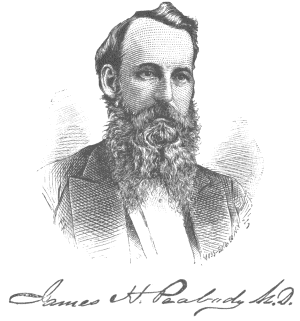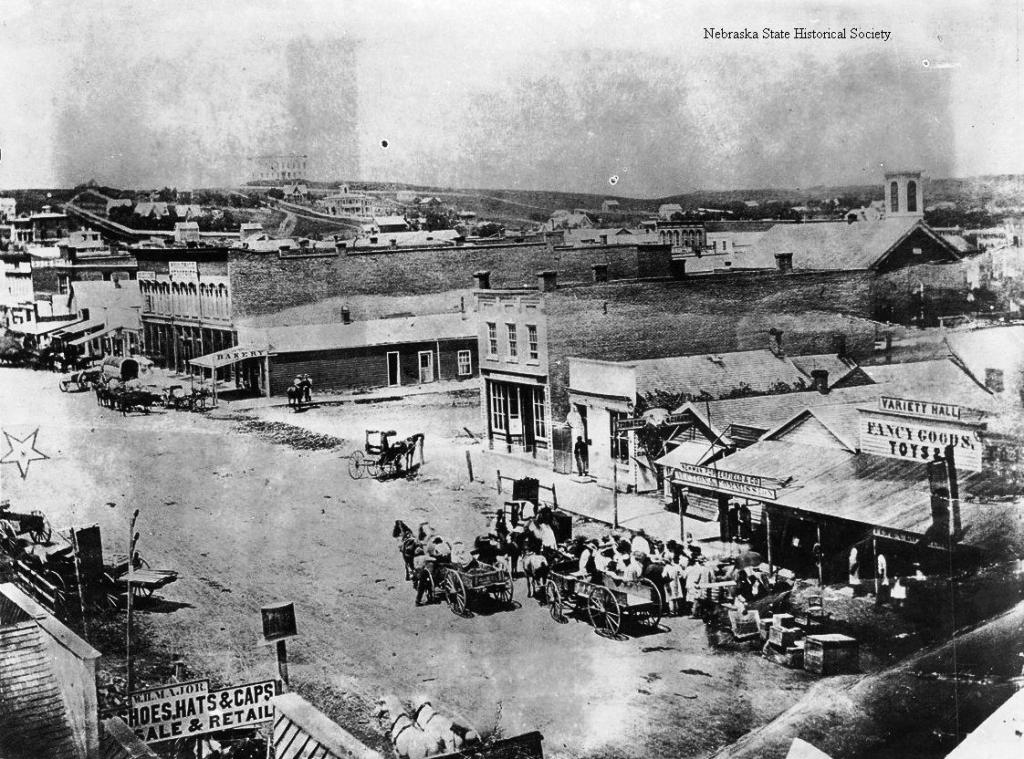Cholera, characterized by severe diarrhea, vomiting, and dehydration, was the most dreaded disease of overland travelers in 1849 and the 1850s, and its possible recurrence was dreaded for decades afterward. Physician James H. Peabody, a former Civil War surgeon, helped fight an outbreak in Omaha in 1867 and before it was over, had contracted the disease himself. The Omaha Daily Bee on September 20, 1892, published an interview with Dr. Peabody, who consulted his past medical notes for details of the 1867 outbreak:
“September 15, 1867, just a quarter of a century since, I was called to see one John M. Bury at the boarding house of Thomas Finan which was situated at No. 212 South Tenth street . . . . On inquiry I found he had just come up from Memphis, Tenn., where cholera was raging.”
Bury died less than twenty-four hours after symptoms appeared. The next day his landlord fell ill with cholera, followed by the landlord’s wife and three daughters. Peabody recalled, “The house was full of boarders at my first visit, but they scampered off like rats from a sinking ship. It was almost next to impossible to get anyone to feed and nurse the Finan family, who were nearly all helpless.” Peabody emphasized, “No one who has not witnessed the rapidity of death in claiming a victim in this disease can imagine the panic that ensues. Men and women with some few exceptions seem to think that their first duty is to save themselves and not to look after their neighbor and they act according.”
Peabody estimated that about sixty cases of cholera were diagnosed in various parts of the city during the 1867 outbreak. During this trying period he contracted cholera from one of the fifteen such patients he treated, but fortunately the doctor survived. Peabody also recalled the public health measures used to fight the spread of cholera in Omaha in 1867:
“Dr. [J. R.] Conkling was our health officer and he was an excellent one, disinfecting most thoroughly by taking all the beds, bed clothing, carpets and everything else he thought might serve as a means of infection and burning them up. I fumigated the houses where my patients had been with sulphur, had everything whitewashed or painted, burned all the clothing I could get access to and with the assistance of the other physicians stamped out cholera and preserved Omaha from getting a backset just as she had recovered from the effects of the [Civil] war.”
Want to read more about Nebraska’s past? Become a member of the Nebraska State Historical Society and receive Nebraska History magazine, four issues yearly.– Patricia C. Gaster, Assistant Editor / Publications





